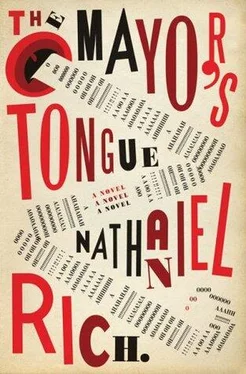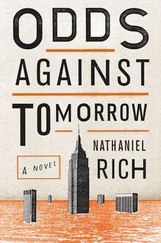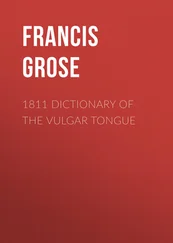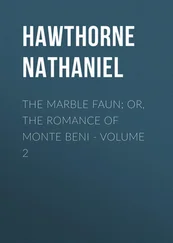"Would you like a glass of cold white wine? I always drink one at sundown. Secret of my longevity. Cold wine and a raw onion each day. The Slovenians taught me that."
Eugene tried to guess at Eakins's proportions from the darkened shapes that heaved and settled over the table. Not knowing exactly where he should direct his gaze, he looked searchingly up and down — though mostly up. Despite being seated, Eakins seemed to be speaking from a height greater than Eugene's six feet.
"It's an honor to meet you," said Eugene. He struggled to find the right words. "No writer has had such a tremendous impact on my views of the world, on the way I perceive human relationships, and on the possibilities of the English language."
Again Eakins's hand lifted, as if to grant a supplication, and lowered again. It landed in a giant bowl of porridge. The bowl was lifted into the darkness where his face might have been. There was then a loud and prolonged slurping noise. When the bowl was placed back on the table, it was empty.
"Can I offer you something to eat?"
"No, thank you. But that's very generous of you."
"More than enough here, if you change your mind," said Eakins, and another platter — over a dozen stalks of asparagus individually wrapped in prosciutto — rose from the table, was emptied into the shadows, and set back down, the serving fork clattering against the china.
"I've been expecting you," said Eakins. "Abe mentioned you'd be here in several of his letters, but I didn't respond to any of them. He's rather sore at me over this point, I'm afraid. But I can't constantly be menaced by his project."
"The biography? I've been helping him conduct research for it. That's the reason Sonia came here in the first place — to make sure that you were still receiving his letters. And capable of responding."
"I am beyond capable," said Eakins, in a sullen drawl. "Agata learned that as soon as she got here." Eakins laughed and shifted magnificently in his chair.
"I have something for you," he said, and his meaty fist swung into the arc of light again, this time clutching a sheaf of envelopes.
"Abe's letters to you," observed Eugene.
"Wrong. The letters are addressed to you. From your father."
The fist flung the package onto the table. It landed on top of a silver tray that had been cleared of all its contents except the garnish. The envelopes bore the Florida address Eugene had given his father and were marked with so many forwarding stamps that the different inks bled together. Each envelope had been bounced from Florida to Alvaro's apartment in New York, as Eugene had arranged; from there Alvaro had forwarded them to Chisholm's brownstone; Abe had requested forwarding service to Frank Lang's bookstore in Trieste, at which point they bounced up to Eakins. The final forwarding address read simply:
The Mayor
Casa Contenta
Idaville
Carso
Italy
DELIVER BY HAND — BOBBY BAZLEN
Eugene's hands trembled as he removed a crumpled, food-stained letter from the first envelope. He was acutely conscious of Eakins's heavy breaths, each one like the shudder of a dying sea mammal.
In the first letter, Eugene's father sent best wishes for his move to Florida, and reported that life in New York was quiet and peaceful. He said that he was trying to adapt to life without his son — a statement that struck Eugene as uncharacteristically warm and personal. In the second letter, mailed seven days later, his father said that he had spent a lot of the previous week walking around his neighborhood, and taking in the fine views of the river. The next letters, each a week apart — he seemed to write every Sunday — detailed the worsening state of his chronic lowerback pain, his efforts to join an Italian-American community center, and his burgeoning relationship with a female friend he had met in physical therapy. In the last paragraph of each letter he inquired after Eugene with growing desperation. Was he happy? Was he making friends? Would he deign to respond to one of his father's letters? Eugene flipped faster and faster through the packet, watching as this final paragraph grew in length and ultimately overtook the rest of the letters' contents. Where are you? Why don't you reply? I think I can understand your silence, because — and here his father would come up with various explanations, ranging from the practical to the wildly imaginative. Anger at me; sadness at not ever having a mother; natural postadolescent rebelliousness or carelessness; self-imposed exile, taking after his father. Ultimately, Signor Brentani settled on the justification that seemed most logical, and most horrible, to him. Eugene's silence was punishment for his father's own silence, his inability to communicate with Eugene throughout his childhood. Signor Brentani hoped that this punishment — Eugene's refusal to respond to his letters — would lead the way to some sort of resolution. If not now, then in the future. If not in his lifetime, then perhaps in Eugene's. He begged Eugene not to make the same mistake, and pass on this legacy of silence to his own children. Eugene was shocked at his father's sudden outpouring of speech, of emotion, of self-analysis. He shuffled through the letters, rereading passages and leaning against the banquet table for support.
As much as Eugene was absorbed in the letters, he could not help but feel that he was being closely watched by the giant seated in the darkness several feet away from him. Eakins's breathing grew ever louder.
"Have a drink," said Eakins. Eugene tipped a nearby carafe into a large goblet and knocked it back, splashing his neck with the wine in the process. He noticed two of Eakins's fingers reaching for a plate of overstuffed sausages, and for a moment he could not distinguish between the digits and the meat tubes.
"Silence from a parent," said Eakins, "is a form of abuse. I bet you'llwish you never received those letters. To realize how invested he is in your relationship only now — and now it is too late — it must be terrifying."
"It's true," said Eugene, in a whisper. But was it really too late?
Eakins moved into the light. The cushion of his chair wheezed pneumatically, the table jolted, and plates shook and smashed to the ground, spilling wild boar terrine, fried mozzarella, and moist, pockmarked strips of tripe. Eugene realized that many of these dishes had been resting in the valley of Eakins's lap.
Eugene directed his gaze at the place where he expected Eakins's face would appear, but he could not make shape of the form — squat and cylindrical like a drum. Only after scrutiny did Eugene realize that he was staring at Eakins's chest, swaddled in a black velvet robe the size of a theater curtain. Recalibrating, Eugene looked higher, and still higher, until he finally arrived at the great man's ferocious countenance. It was shocking to behold.
Eugene could just barely recognize Eakins from the author photographs that appeared on the dust jackets of his books. Amazingly, his face didn't seem to have aged very greatly. It only seemed to have gotten larger, as if it had been injected with steroids, or intubated with balloons. Certainly he no longer had the pure, fair skin of his youth; it was drier now — saurian, but not wrinkled. Nor did he still have the famously pale blond hair; it was now an orangey white. The thin, wiry eyelashes were gone entirely and his nose had taken on the dimensions of a Friulian turnip. His chin was no longer cleft, but ditched; the dime-sized mole had appreciated tenfold into a silver dollar. His cheeks were ripe blankets of flesh, his ears like giant barnacled oysters. Even his hair had been subjected to this principle of expansion. Though neatly arrayed on his head in a classic style — parted on the left and smoothly combed over — its bulk was such that it gave his head a tangerine aura.
Читать дальше












